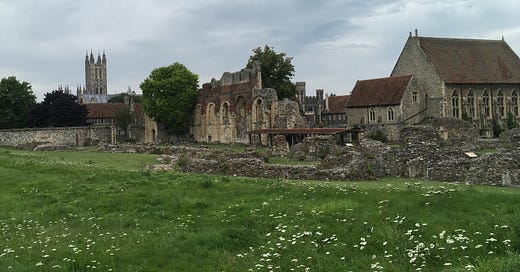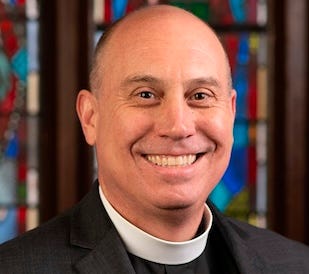A message sent earlier today to the clergy of the Diocese of Olympia by Bishop Phil Labelle
Dear Beloved Friends,
It’s been just over a week since the election was called. And in conversation with some of you, I’ve heard the frustration and confusion and fear of what might be when the president-elect is sworn in come January 20 (which also just so happens to be when we observe MLK Day). I suspect in our congregations—and even among this clericus—there are some who are quietly pleased about the turn of events, but for many among us, the policies that may likely be set in motion will impact those we care for and cause immense pain.
I’ve often wondered which committee along the way decided to clean up the psalter for the Daily Office Readings. Those parentheses and brackets making verses or entire psalms optional. Like the backend of Psalm 137 about the time of Exile. It begins with how those captured sat along the waters of Babylon and wept, and then they receive a request from the Babylonians to sing joyful songs in order to entertain them. They question how they could sing songs of mirth on foreign soil when they missed Jerusalem and the temple. In the optional section, we pray, "O Daughter of Babylon, doomed to destruction,* happy the one who pays you back for what you have done to us! Happy shall he be who takes your little ones,* and dashes them against the rock!”
On September 12, 2001, my New Testament professor came into our seminary class and put aside his lecture for the day. He read Psalm 137 in its entirety and said that while the end is appalling, surely the raw emotions many of us felt could be found in that ending. "Happy the one who pays you back! Happy the one who takes your babies and kills them!" He went on to ask if there could be a more appropriate a place to discuss the feelings of pain and hurt and confusion and fear than among those called to serve God? If even we could not read this Psalm of Lament on even that day—a song, he reminded us, in the hymnal for the Hebrew people and in our holy scripture—then when? Wouldn’t it be better, he asked, for us to pray to God the emotions we were feeling in order to leave them with God rather than acting on them? Wouldn’t we do well to lament and get the emotions out, then keeping them bottled up and repressed?
If you were to take those optional Daily Office Psalms and compare them to the Psalms of Lament, you’d find congruity. While some of the lament Psalms remain, the ones desiring ill on our enemies—like Psalm 58 wishing they were like a snail caught out in the blazing sun—are seen as a bit too much to be used in polite worship. And so we’re given the option to avoid them. But at what cost to our souls?
Jesus would have known those psalms, and I think we can be fairly certain they would have been sung from time to time when he went to his local synagogue. And he continued to embody the way of love. He didn’t inflict harm. He didn’t strike out.
Friends, I’ve heard from some of you that we’ve forgotten how to lament. How to sit with the pain that we might be feeling—whether that’s the results of last week, or the pain of a failing relationship, or the overwhelm of the climate crisis—and offer it to God in all its rawness. God formed us, and clearly God knows about the range of emotions we feel. In our world so focused on appearances and keeping on the masks that hide our most authentic selves, we don’t know how to sit with grief. These optional Psalms open up a window on how to do that. How to pray when we’re distressed. And often those Psalms end up coming back to trusting in the sovereignty of God, of placing our days into the hands of the One who created us. Of believing that God hears those prayers and seeks to console us and sustain no matter what rages around us.
As we lead our congregations with many who are hurting, let’s find ways to express lament. To allow the feelings to be valid and voiced. And to then trust that even in the bleakest of times, God remains with us. That God abides.
With continued prayers,
Phil
Bishop Phil Labelle
Diocese of Olympia
Note from Brother Robert OA & Sister Michelle, OA
We want to thank Bishop Phil for giving us permission to reprint his article from “Pie”, the clergy newsletter of the Diocese of Olympia.
We’ll add two related items.
First, this lovely version of “By the Waters of Babylon.” We hope you enjoy it.
"By the Waters of Babylon" (2017) by Joey Weisenberg and the Hadar Ensemble (Based on Psalm 137)
Second, we want to remind you of an earlier posting in which a number of spiritual guides offer advice similar to Bishop Phil’s. His expression about sitting with the pain especially caught our attention. That earlier posting began with this - “If we are to pray aright, perhaps it is quite necessary that we pray contrary to our own heart. Not what we want to pray is important, but what God wants us to pray - Dietrich Bonhoeffer, Psalms: The Prayer Book of the Bible
The Psalms: They school us in honest prayer
Top picture: St Augustine's Abbey was a Benedictine monastery in Canterbury, founded in 598.





